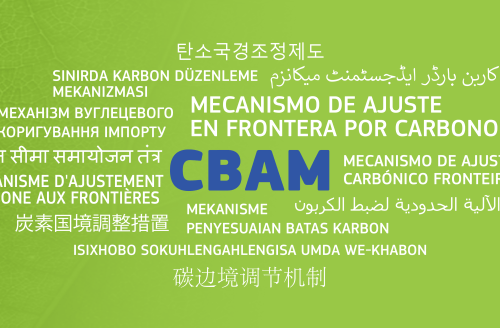The academic landscape has become increasingly competitive, with researchers and students vying for limited resources, funding, and recognition. While competition can drive innovation, excessive rivalry can lead to chaos, undermining the fundamental principles of learning and knowledge-sharing. This article explores the detrimental effects of competitive chaos in academia, including the suppression of creativity, the proliferation of predatory publishing, and the erosion of collaboration and mentorship.
Table of Contents
The Rise of Competition in Academia
In today’s academic landscape, competition has become a defining feature. From the earliest days of education, there has always been some level of rivalry among students and scholars. However, in recent decades, this competition has intensified, transforming into what can be described as “competitive chaos.” This shift has raised concerns about whether the original purpose of academia—learning and the pursuit of knowledge—is being overshadowed by the relentless race for success.
Defining Competitive Chaos
So, what exactly is competitive chaos in academia? Unlike healthy competition, which can motivate individuals to perform better, competitive chaos refers to an environment where the pressure to succeed becomes overwhelming. It creates a situation where the focus shifts from genuine learning to achieving high grades, publishing numerous papers, and securing prestigious grants. This chaos not only affects students and researchers but also the very fabric of academic institutions.
Understanding Academia and Research
The Purpose of Academia and Research
At its core, academia is meant to be a sanctuary for learning and intellectual growth. The primary goal of research is to contribute to societal progress by exploring new ideas, solving problems, and advancing our understanding of the world. However, as competition intensifies, these noble purposes are often compromised. Instead of fostering a love for learning, academia has increasingly become a battleground where success is measured by metrics such as publication counts and impact factors. Public engagement with science is a crucial goal and component of scientific education and communication. Read more about it here.
Traditional Learning vs. Modern-Day Academic Pressure
In the past, learning was an end in itself. Students were encouraged to explore subjects deeply, without the pressure of constant assessment. Today, however, the academic environment has changed dramatically. The focus has shifted from gaining knowledge to achieving success, often measured by grades, publications, and awards. This shift has led to a culture where learning takes a backseat to the pursuit of tangible achievements.
Impact of Competitive Chaos
Stress and Burnout Among Students and Researchers
One of the most immediate impacts of competitive chaos is the rise in stress and burnout among students and researchers. The pressure to excel in a highly competitive environment can be overwhelming. For many, the constant fear of failure, coupled with unrealistic expectations, leads to chronic stress, anxiety, and even depression. Burnout has become alarmingly common, with many talented individuals leaving academia altogether due to the toll it takes on their mental health.
Quality vs. Quantity in Research
Another significant consequence of competitive chaos is the emphasis on quantity over quality in research. The “publish or perish” culture has led to an environment where the number of publications is often valued more than the actual content of the research. This pressure to produce frequent publications can lead to rushed, incomplete, or even poorly conducted studies, ultimately undermining the integrity of academic research.

Plagiarism and Unethical Practices
As the competition heats up, so does the temptation to engage in unethical practices. Plagiarism, data fabrication, and other forms of academic dishonesty are on the rise. The drive to succeed at any cost can lead individuals to cut corners, compromising the validity of their work and tarnishing the reputation of academia as a whole.
The Diminishing Value of Collaborative Learning
In a competitive environment, collaboration often takes a backseat to individual achievement. The spirit of teamwork, which is essential for innovation and progress, is overshadowed by the desire to outperform others. As a result, collaborative learning opportunities are diminished, and the potential for groundbreaking discoveries is lost.
The Broader Implications of Competitive Chaos
Effect on Innovation and Creativity
Innovation and creativity thrive in environments where individuals feel safe to explore, experiment, and take risks. However, in a competitive academic landscape, the fear of failure can stifle creative thinking. Researchers may be less inclined to pursue unconventional ideas or take on high-risk projects, leading to a decline in truly innovative work.
Mental Health Concerns
The mental health crisis in academia is a growing concern. The pressure to perform, combined with the fear of falling behind, can have severe consequences for mental well-being. Anxiety, depression, and other mental health issues are becoming increasingly common among students and researchers, highlighting the urgent need for systemic change.
Global Perspective: Different Cultures, Same Problem?
Competitive chaos is not limited to any one country or region. Around the world, academic institutions are grappling with similar issues. While the specific manifestations may vary, the underlying problem remains the same: an overemphasis on competition at the expense of genuine learning and intellectual growth. A comparative analysis of global academic systems reveals that this is a widespread issue that requires collective action.
Response from the Academic Community
Criticism of the Current Academic System
Many voices within the academic community have criticized the current system, calling for a shift away from competitive chaos. Scholars, educators, and students alike are advocating for a return to the core values of academia: learning, curiosity, and the pursuit of knowledge. Proposed reforms include changes to evaluation criteria, a greater emphasis on mental health, and the promotion of collaborative rather than competitive learning environments.
Examples of Institutions Adopting Change
Despite the challenges, some institutions have begun to address the issue of competitive chaos. These schools and universities are experimenting with new models of education that prioritize holistic learning over cutthroat competition. Case studies of these institutions provide hope that change is possible and that a more balanced approach to academia can be achieved.
Future of Learning in Academia
Can Academia Return to Its Roots?
Is it possible for academia to return to its roots, where learning and intellectual curiosity were the primary goals? While it may be challenging, it is not impossible. By re-evaluating our priorities and making conscious changes to the way we approach education, we can begin to shift the focus back to knowledge and learning.
Role of Technology in Shaping the Future of Learning
Technology has the potential to play a significant role in reducing competition in academia. Online learning platforms, for example, can provide more personalized and flexible learning experiences, allowing students to learn at their own pace without the pressure of constant comparison with peers. Additionally, technology can facilitate collaboration and innovation, helping to foster a more supportive and inclusive academic environment.
Promoting Mental Well-being in Academia
Promoting mental well-being in academia is crucial for the future of learning. Institutions must take proactive steps to support the mental health of students and researchers, including providing access to counseling services, reducing workload pressures, and creating a culture of openness and support. By prioritizing mental well-being, we can create a healthier, more sustainable academic environment.
Summary
The competitive chaos in academia and research is indeed threatening the very foundation of learning. The pressure to succeed at all costs is leading to stress, burnout, and a decline in the quality of research. Collaboration is being overshadowed by individual achievement, and the mental health of students and researchers is at risk. However, there is hope. By re-evaluating our priorities and making conscious changes, we can begin to shift the focus back to knowledge and learning.
It’s time for all of us—students, educators, researchers, and institutions—to advocate for change in academia. Its’s a time to work together to create an environment where learning is valued over competition, where mental well-being is prioritized, and where collaboration and creativity can thrive.
FAQ
What is competitive chaos in academia?
Competitive chaos refers to the overwhelming pressure in academic environments that shifts the focus from learning to achieving success at any cost. This can lead to stress, burnout, and unethical practices.
How does competition affect the quality of research?
Competition can lead to a focus on quantity over quality, with researchers feeling pressured to publish frequently. This can result in rushed, incomplete, or poorly conducted studies, undermining the integrity of academic research.
Are there any benefits to competition in academia?
While healthy competition can motivate individuals to perform better, competitive chaos often leads to negative outcomes, such as stress, burnout, and a decline in the quality of learning and research.
What can institutions do to reduce competitive chaos?
Institutions can reduce competitive chaos by promoting collaborative learning, re-evaluating evaluation criteria, prioritizing mental health, and creating a supportive academic environment that values knowledge and intellectual curiosity.
How can students manage stress and pressure in a competitive academic environment?
Students can manage stress by seeking support from counseling services, practicing mindfulness and self-care, setting realistic goals, and finding a balance between academic and personal life.





